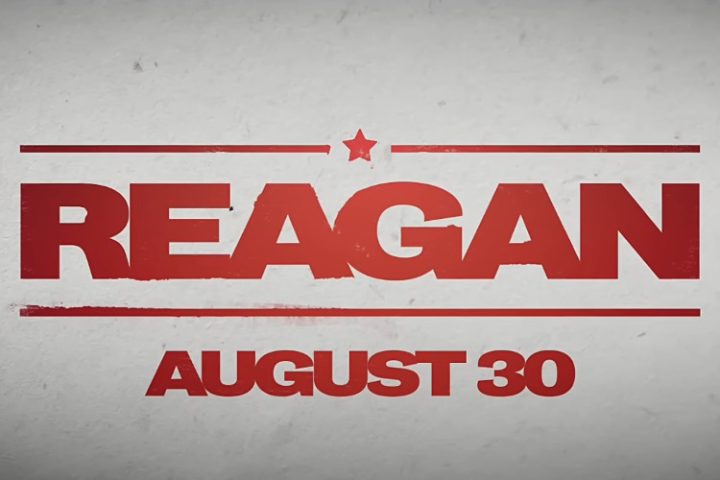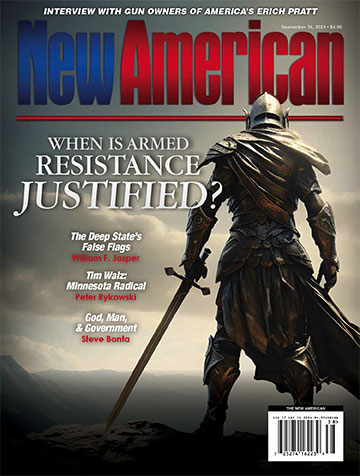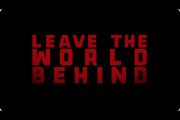
Based on Paul Kengor’s book Ronald Reagan and the Fall of Communism, the new movie Reagan covers the life of the 40th president of the United States, with the overarching theme of his decades-long desire to see the demise of the Soviet Union.
Dennis Quaid performed brilliantly as the title character in a performance that would likely make him a contender for an Academy Award — that is, if the Hollywood industry was not in the clutches of those sympathetic to communism.
The movie opens with the attempted assassination on Reagan early in his presidency, before the scene shifts to Russia some years later. Jon Voight plays a fictional KGB analyst (Viktor Petrovich) who is explaining to a young Russian how Reagan brought about the implosion of the Soviet Union. Unfortunately, despite the title of the book upon which this movie is based, communism still exists in many places around the globe, and continues to have its advocates today even in America.
The movie then moves back in time to when Reagan was a just a boy. We see him reading a novel — given to him by his devout Christian mother, Nelle (played by Jennifer O’Neill) — entitled That Printer of Udell’s by Harold Bell Wright. The 1902 novel was the story of a young man in a small town, who, after becoming a Christian, was inspired to reform his community. This leads Reagan, as a youth, to follow his mother’s Christian faith, and to insist to the pastor of her church that he needed to be baptized. Later, a man who escaped from the Soviet Union spoke at Reagan’s church, painting a nightmarish picture of communism that greatly affects the teenaged Reagan.
Reagan’s opposition to communism intensifies after he becomes the president of the Screen Actors Guild, a role in which he successfully stops communists from taking over the unions in the motion-picture industry. The KGB had funded the attempted takeover. To reinforce Reagan’s importance in thwarting the plans of the communists, the movie depicts an ex-communist testifying before Congress that one man stopped their plans — Ronald Reagan.
But this “crusade” took a toll on Reagan’s acting career, as well as his marriage to his first wife, Jane Wyman, who did not like his involvement in politics and demanded that he devote more effort to winning an Oscar. After Wyman and Reagan divorced, Reagan meets actress Nancy Davis, played by Penelope Ann Miller. As Reagan is president of the Screen Actors Guild, Davis seeks his help in getting her name off a list of suspected communists in Hollywood. Apparently, there was another Nancy Davis in the motion picture industry who was a communist. In the movie, it is made quite clear that she is very interested in Reagan romantically.
This meeting leads to a courtship and marriage, and Nancy is portrayed in the movie as a wife who is totally dedicated to her husband. She supports his entrance into the political arena, an entrance that he sees as part of God’s plan for his life. It is a message that his mother had given when he was a boy, telling him that God had a plan for his life.
As his acting career deteriorates, Reagan supports himself and his family by making commercials, until he becomes the national spokesman for General Electric. This leads Reagan — an avid reader of political philosophy of such men as Frédéric Bastiat — to develop a stock speech with anti-big government and anti-communism themes. When some in the presidential campaign of Senator Barry Goldwater ask him to deliver a TV speech in October, 1964, his “Time for Choosing” speech was really just a revision of the speech he had been giving around the nation for several years.
This led some California business leaders to recruit him to run for governor of California in 1966. After serving two terms in Sacramento, Reagan challenges President Gerald Ford for the Republican nomination in 1976. After he narrowly loses to Ford, it appears his political career is finished, with Reagan saying that his being president was apparently not God’s plan.
But after the disastrous presidency of Jimmy Carter (who defeated Ford), Reagan decides to run for president again in 1980, and he wins.
The rest of the movie focuses on Reagan’s campaign to bring down the communist government of the Soviet Union — with dramatic scenes of his brush with death in the 1981 assassination attempt.
Reagan is shown convincing British Prime Minister Margaret Thatcher (played by Leslie-Anne Down) to quit buying gas from the Soviet Union, to weaken the Soviets economically. When Reagan launches his effort to build a space-based defense against nuclear missiles, the movie has scenes of demonstrators calling him names like “Hitler.” This Strategic Defense Initiative (SDI), popularly derided as “Star Wars,” greatly worried the leaders of the Soviet Union, according to the ex-KGB analyst played by Voight.
Mikhail Gorbachev, the final Soviet general secretary during Reagan’s tenure, tries desperately to get Reagan to give up SDI during the summit at Reykjavik, Iceland, but Reagan tells him, “Nyet.”
Reagan instructs his speechwriters to sharpen his speeches, which leads to opposition from within his own administration, including Secretary of State George Shultz, who pleads with Reagan not to provoke Gorbachev at the Berlin Wall in June 1987. Shultz was particularly alarmed that Reagan intended to demand that Gorbachev to “tear down” the wall — the symbol of the division that Soviet communism had brought to Europe, splitting the German capital of Berlin into communist and non-communist spheres.
The movie then shifts to two years later, when the people on both sides of the Berlin Wall begin using sledgehammers and chisels to break down the infamous barrier. By that time, Reagan has retired to his ranch in California, and is soon suffering from the dementia that would remove him from public life.
The movie ends with Reagan’s farewell letter to the American people, in which he revealed that he was one of the many Americans who had become afflicted with Alzheimer’s disease. The letter ended with the words “until the Lord calls me home.”
For those who lived through the Reagan years, the movie is a proverbial trip down memory lane. Unfortunately, with our present political situation and the continuing strength of the American Left, one realizes that communism is alive and well in our world. As William Cullen Bryant said in the 19th century, “Nor yet, O Freedom, close thy lids in slumber, for thine enemy never sleeps.”



